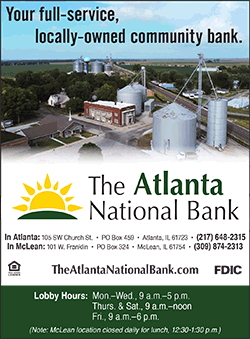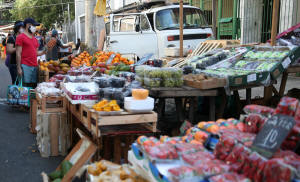Brazil's 2022 inflation slows sharply, misses government target
 Send a link to a friend
Send a link to a friend
 [January 10, 2023] By
Marcela Ayres [January 10, 2023] By
Marcela Ayres
BRASILIA (Reuters) - Brazil's inflation ended 2022 with a sharp slowdown
from double-digit peaks seen throughout the year on the back of fiscal
measures and an aggressive monetary policy tightening, but once again
missed the government's official target.
The benchmark IPCA consumer price index rose 5.79% last year, statistics
agency IBGE said on Tuesday, higher than the 5.60% median forecast in a
Reuters poll of economists.
The result missed both the central bank's annual target of 3.5% and the
top 5% of its tolerance band, marking the second straight year that it
had done so.
Central bank chief Roberto Campos Neto is legally required to publish a
letter justifying the inflation target miss. It will be released on
Tuesday, according to the central bank.
The index was up 0.62% in December alone, IBGE said, above the 0.45%
forecast in a Reuters poll.
Andres Abadia, chief Latin America economist at Pantheon Macroeconomics,
noted that disinflation continues in Brazil, helped by tight financial
conditions, stuttering economic growth, and broad tax waivers to bring
prices down.

"Inflation should continue to decline over the next three to six months,
though at a more modest pace than in the second half, assisted by the
recent fall in oil prices," he wrote in a note to clients.
In 2022, the central bank continued its aggressive monetary tightening
to battle inflation, lifting its key interest rate to 13.75% from a
record low of 2% in March 2021. Since September, policymakers have left
rates unchanged at their cycle-high, stressing they remain vigilant
about inflationary pressures.
[to top of second column] |

Consumers shop at a weekly street market
in Rio de Janeiro, Brazil, September 2, 2021. REUTERS/Ricardo Moraes

William Jackson, chief emerging markets economist at Capital
Economics, said the higher-than-expected 2022 inflation coincided
with growing fiscal concerns after leftist President Luiz Inacio
Lula da Silva secured the approval of the Congress to boost welfare
spending.
That will give the central bank "more cause to delay the start of
its easing cycle," Jackson said.
According to IBGE, inflation last year was mainly impacted by the
increased costs of food and beverages (+11.64%) and health and
personal care items (+11.43%).
Overall 12-month inflation was in double digits until July last
year, affected by surging commodity prices triggered by the war in
Ukraine.
But the government of former President Jair Bolsonaro took measures
to ease prices before an October presidential election, including a
costly tax waiver on fuels that was recently extended by Lula.
Congress also approved last year a reduction in state taxes for a
range of key items, including energy, telecommunications and fuels.
As a result, the transport group had a negative contribution of
1.29% to inflation in 2022, driven by the 25.78% drop in gasoline
prices.
State-run oil giant Petrobras contributed to the disinflationary
trend, adopting a series of price cuts when international oil prices
settled.
(Reporting by Marcela Ayres; Editing by Steven Grattan and Paul
Simao)
[© 2023 Thomson Reuters. All rights
reserved.]
This material may not be published,
broadcast, rewritten or redistributed.
Thompson Reuters is solely responsible for this content.
 |